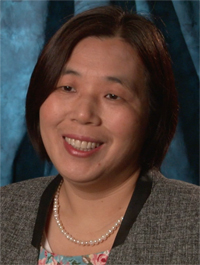
June Wang
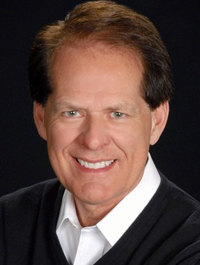
Rob Slayman
Recently I sat down with June Wang from Pearl River Piano Group and corresponded with Rob Slayman from Schimmel Piano to discuss their strategic alliance as I was curious how it had affected both companies. It was announced at NAMM 2016 that Pearl River had purchased a controlling interest in the Schimmel company.
Why do piano companies purchase other piano companies? We hear of company mergers in the news all the time. What is the impetus – the driving force for one piano company to acquire another piano company? If we paint with large brush strokes, on one side there is massive demand to be fulfilled in China. Nearly 80% of the world’s piano purchases happen in China. Alternatively, Germany, Japan and the USA have decades (if not centuries) worth of experience manufacturing pianos with a “mature” market that could really only be described as “slow and steady”. While European and North American companies have struggled to stay competitive and make inroads into distribution in China, China has become the world’s leader in volume for manufacturing. Back to the question of why? Let’s hear from the words of June Wang, representative from Pearl River’s Foreign Trade department:
June Wang: Collaborations must be mutually beneficial. Pearl River had it’s beginnings in China approximately 60 years ago and has had cooperation with Yamaha and Steinway as well as partners in Europe for training and quality. Some of these ventures (like Yamaha) lasted more than a decade. When looking to expand our company, it seemed appropriate to look for a company with like-minded philosophy of piano making. When I met Nikolaus Schimmel, the way he described piano making… he was like a new mother with a child – excited, passionate – even though he was more than 80 years old. It’s this kind of enthusiasm that we were looking for.”
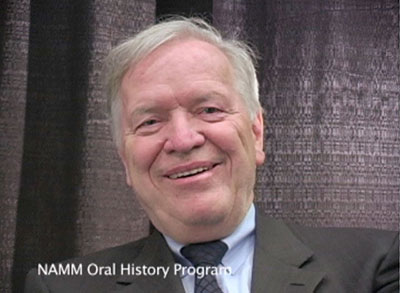 Click on the image to take a quick look at the NAMM oral project of a 2 minute interview with Nikolaus Schimmel. In his words “piano making is really fun. It must be something that you like – that you love to do. My father loved it, my grandfather loved it and so did I. I’m sure the next generation will as well.”
Click on the image to take a quick look at the NAMM oral project of a 2 minute interview with Nikolaus Schimmel. In his words “piano making is really fun. It must be something that you like – that you love to do. My father loved it, my grandfather loved it and so did I. I’m sure the next generation will as well.”
JW: Schimmel has 130 year history (established in 1885). Pearl River has been operating for more than 60 years. Our companies share common elements and yet are different. Together, we benefit in technology and market share. We will continue to operate as separate manufacturers (Schimmel in Germany and Poland while Pearl River manufactures in China) but we will benefit together. Pearl River has a very competitive share in Asia and North America having just won the Dealer’s Choice Award for 2015 and 2016. Schimmel has a dominant presence in Europe. This will compliment our business because our companies have strengths in different parts of the globe.
Rob Slayman: The Alliance between Schimmel and Pearl River has strengthened Schimmel and opened a unique perspective for growth in the Chinese market, the biggest market for pianos in the world. At the factory in Germany and in U.S. distribution, virtually nothing has changed in the year since the alliance was announced. The Schimmel brand will remain 100% made in Braunschweig, Germany and the Wilhelm Schimmel brand will remain 100% made in Kalisz (Poland). We will continue to fulfill the very strict criteria of the BVK-Certificate for “Made in Germany.”
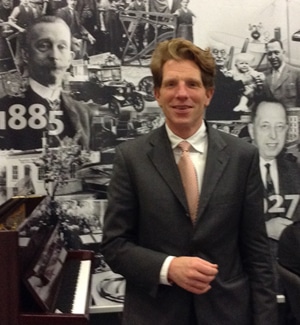 Glen Barkman: And 4th generation Hannes Schimmel-Vogel will still be at the helm. What do you see in the future working together?
Glen Barkman: And 4th generation Hannes Schimmel-Vogel will still be at the helm. What do you see in the future working together?
JW: I like to think of this somewhat like a marriage. As partners, you first of all need to understand each other, then grow together and finally benefit together. You remain independent yet together. To be successful, both parties need to be happy.
RS: For Schimmel, this alliance brings the stability of solid financial backing and the chance to successfully grow our business in China with support from Pearl River, the country’s market leader. In accordance with this aim, production for Schimmel will grow and continuous investments in Schimmel’s facilities will continue. As allies, both companies have their strengths in different areas. For both brands that results in being able to offer the best quality and value in the piano industry. As a side note, it can be challenging to build a brand in China without a strong partner already there. Pearl River is the strongest partner we could have and we anticipate much better market representation and more opportunities in China as a result.
GB: Although remaining separate, this last year has seen a joint venture between the 2 companies, namely Fridolan Schimmel. Fridolan Schimmel is a line that will be manufactured by Pearl River and designed by Schimmel. Can you tell us a little about that, Rob?
RS: The Fridolin Schimmel line was launched a couple of years ago as a conventional effort to expand the market and to increase name recognition for the Schimmel brand. 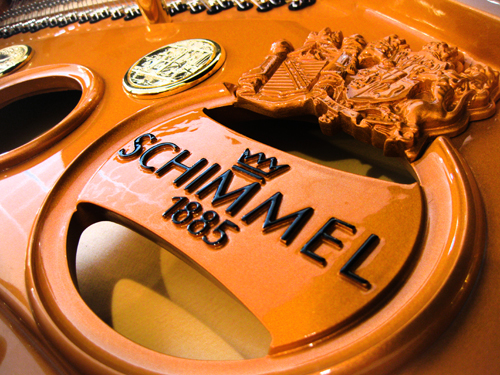 Now, with the Schimmel and Pearl River alliance, there are unique possibilities for a world-premiere entry level piano developed as a true joint-effort between Schimmel and Pearl River. For the first time ever, a piano line made in China is designed and developed by a German company without any restrictions. As of April 2017, the all new Fridolin Schimmel models will be available. These instruments are completely designed by Schimmel. Pearl River adjusted its production facilities and processes to match our specifications. They will be distributed and warrantied by Schimmel. The first models are three uprights, F123, F121, and F116. At a future date there will be grand piano models and a taller upright.
Now, with the Schimmel and Pearl River alliance, there are unique possibilities for a world-premiere entry level piano developed as a true joint-effort between Schimmel and Pearl River. For the first time ever, a piano line made in China is designed and developed by a German company without any restrictions. As of April 2017, the all new Fridolin Schimmel models will be available. These instruments are completely designed by Schimmel. Pearl River adjusted its production facilities and processes to match our specifications. They will be distributed and warrantied by Schimmel. The first models are three uprights, F123, F121, and F116. At a future date there will be grand piano models and a taller upright.
GB: What’s the current line-up of pianos for Schimmel?
RS: The three Schimmel-produced lines are Konzert, Classic and Wilhelm Schimmel. They each fall in a different price range to fill various needs of players and budgets.The fourth line is the Fridolin Schimmel by Pearl River. Here is a brief summary of each line.
The Konzert Series represents the pinnacle of Schimmel’s 130 years of piano building. They are designed and meticulously built for the most discerning players and artists. There are no compromises. As such, these are in the upper price level. There are 6 grand piano models from 5’9” to 9’2” and three uprights. All grands since 2013 feature the exact same action and key length as the 9’2 concert grand by way of a Schimmel- designed and patented process. Only these models go through a special voicing department in the factory (created just for the K Series) and they have several unique features as well.
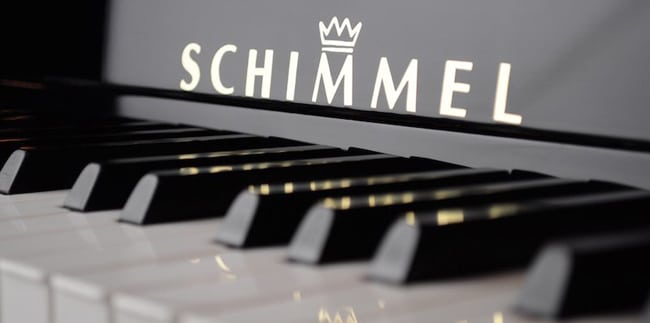 The Classic Series is also made 100% in Germany and is geared towards professional pianists and those who appreciate German quality. The line consists of three grands 5’7”, 6’3” and 7’ and several vertical models up to 130 cm. These are models that have been in the Schimmel line since before the current Konzert Series and have been tried and proven for many years. The three grand models are based on the same scale designs as the three small Konzert Series grands.
The Classic Series is also made 100% in Germany and is geared towards professional pianists and those who appreciate German quality. The line consists of three grands 5’7”, 6’3” and 7’ and several vertical models up to 130 cm. These are models that have been in the Schimmel line since before the current Konzert Series and have been tried and proven for many years. The three grand models are based on the same scale designs as the three small Konzert Series grands.
The Wilhelm Schimmel Series is a high-quality European piano in a moderate price range. This series is built in the Schimmel factory in Kalisz, the oldest city in Poland. After acquiring this factory in the early 2000s, Schimmel modernized it and expanded it with new buildings and equipment. This factory produced the Vogel brand which underwent the name change to Wilhelm Schimmel in 2013.

The Fridolin Schimmel line as mentioned above fills a niche for the entry level buyer who wants a quality Schimmel German design. They are made by the Pearl River Company to Schimmel’s specifications exclusively for Schimmel dealers.
GB: What elements of design are historical and timeless with Schimmel and what areas are forging forward with technology and being modified?
RS: Schimmel is somewhat unique in how they combine traditional piano building with technology and the creation of new designs. Being a major training center for apprentice piano technicians, they employ many master craftsmen, a title which takes many years to attain through schooling, work and certification. So, Schimmel has a long history of traditional piano building with an emphasis on quality and attention to detail. Schimmel tone is clear and expressive with long and even sustain qualities. Schimmel uses technology when it can improve the quality and consistency of certain parts and operations. They pioneered sophisticated software called CAPE (Computer-Assisted Piano Engineering) which enormously shortens the time and expense of building many prototypes. Through this technology Schimmel was able to completely redesign and improve their grand pianos starting in the year 2000, making the sides taper outward, creating space for larger soundboards. They also came out with a 9’2” concert grand which was not previously in the line. In visiting different piano factories over the years, I’ve noticed that some in Asia are very modern, clean, and highly-automated while others in Europe are old-school with much less machinery and more old-fashioned handcraftsmanship. The Schimmel factory is a unique juxtaposition of both of these, using the best practices from each and even designing and inventing their own equipment. In production, tone-related operations are still accomplished by hand while steps that require great precision and accuracy are accomplished by computer-driven machines to increase quality and consistency. Schimmel exists to craft fine pianos first, and to maintain a profit to ensure continued viability second. This art-over- profit approach may strike some as risky but as Hannes Schimmel-Vogel has said, “If we don’t have the skills to build a fine piano, we have no reason to exist.” Nikolaus Schimmel, now retired from active management has stated, “We can never be the cheapest piano maker, but if we keep our skills, we can build the best pianos. As long as there are people interested in a fine piano, there will be a place for Schimmel.”
Thank you to both June Wang and Rob Slayman for shedding some light on your new strategic alliance. It is both helpful and informative to know how your piano companies are moving forward into the future.
More Piano Articles
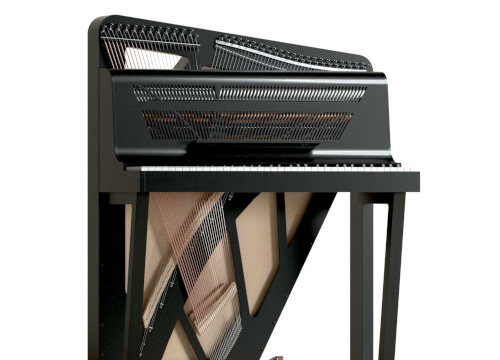
Many years ago, I remember seeing a piano in a museum similar to the one shown above (built in 1787 by Christian Gottlob Hubert. On display at Germanisches Nationalmuseum - Nuremberg, Germany). I have often wondered why acoustic portable pianos never really took off. Although we've seen more portable keyboard instruments like harpsichords, accordions or electronic keyboards, they operate completely different from a traditional piano in that they either pluck the strings, use air with ...
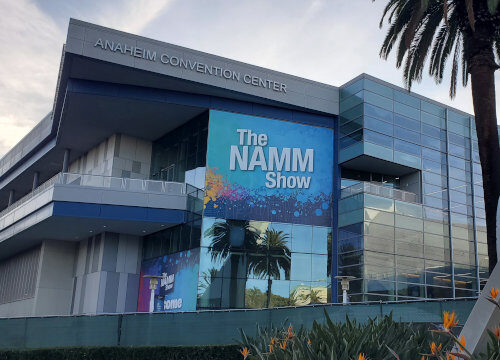
This was the first year since covid that the National Association of Music Merchants (NAMM) trade show was back to its regular January date and, in fact the first show where it felt back to normal. How was it? To answer that, I'm going quickly review the piano market over the last few years. Piano sales boomed during covid. Think about it - everyone was at home and with time on their hands, many turned ...
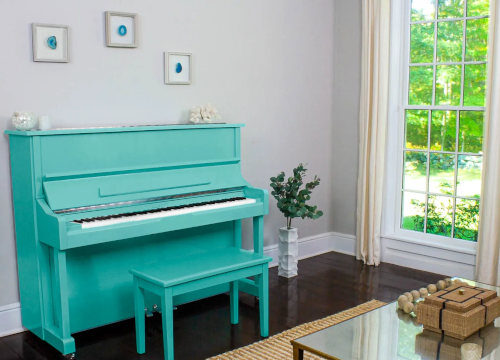
I’ve often wondered when the business model of piano buying would start to change. It seems like we feel comfortable purchasing everything from toothpaste to tires online and yet pianos are one thing that you still buy in a store. Well some of that is about to change. After speaking with Larry Caruso from Caruso Piano, they’re launching a brand of piano made specifically for online ordering. It’s called
Sonnova. I recently had the pleasure ...
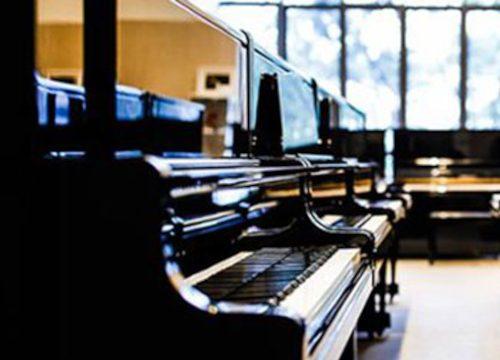
The thought of buying a piano can be exciting but it can also be a bit intimidating or daunting, especially if you don’t know anything about them. But have no fear, because at Piano Price Point, we’ve compiled so much of the data and written articles to make your job easier. To narrow down the scope of buying a piano, you first need to decide what kind of piano you’re looking for. Ask yourself these ...
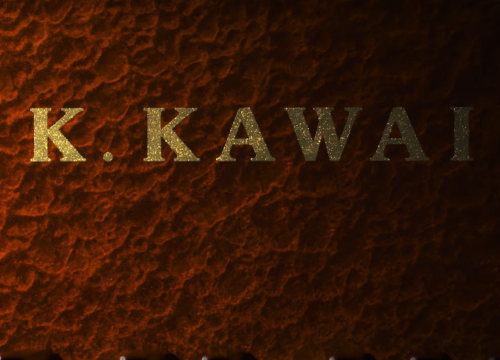
Money, apparently
does grow on trees or at least in ancient times it did. It's been recorded that rare tree sap was used as a form of payment for tax because it was deemed so valuable. This sap from the tree was harvested and refined into lacquer with incredible clarity and sheen. Many thousands of years ago, it was reserved for imperial palaces, religious temples and shrines. Early
examples have been dated to 7000BC. It ...
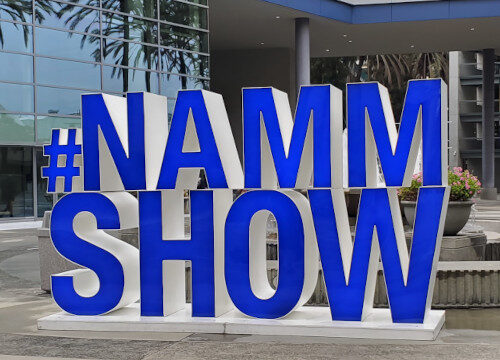
NAMM is always a great time to see the latest pianos. This was my first show since covid and despite being off-schedule in April (the show usually runs in January), it was nevertheless well represented. Many of the manufacturers opted out of this show because the upcoming show in 2024 is only 9 months away. These shows are a massive amount of work for presenters. When you think of how many pianos get moved and ...